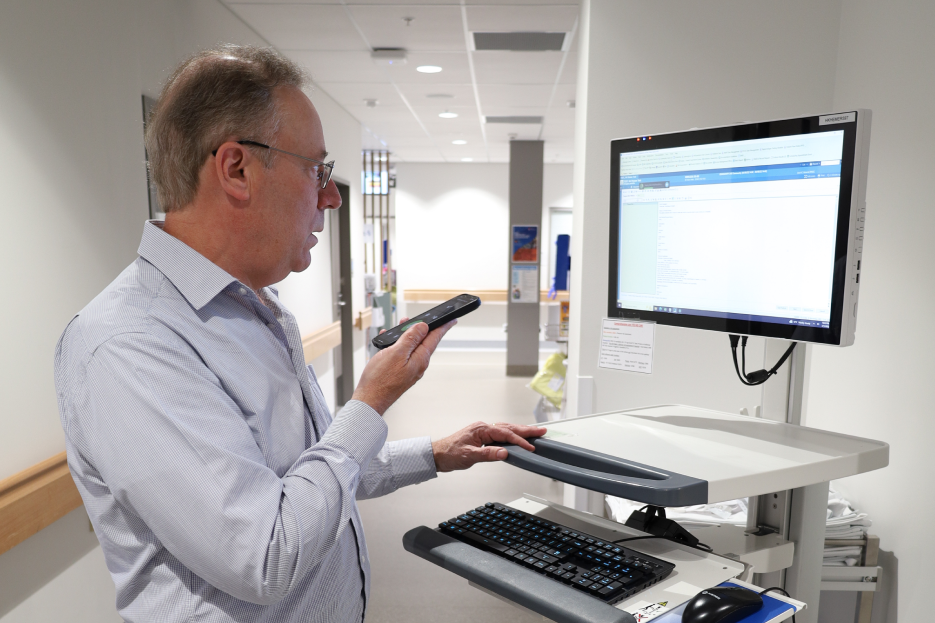Parents and carers can now provide online consent for their child to receive routine vaccinations at school, rather than complete paper-based consent forms. This change makes it easier for parents and supports vaccination uptake.
Launched in early 2023, Consent and Records Management for Immunisation (CaRMI) is a digital solution enabling online consent, clinic management and operational reporting for the NSW School Vaccination Program.
Partnering with Health Protection NSW
eHealth NSW partnered with Health Protection NSW to develop CaRMI. The new digital solution is improving the collection and management of school vaccination consent records across the state.
As part of the NSW School Vaccination Program, NSW Health works with schools to offer the vaccines recommended and funded for adolescents by the National Health and Medical Research Council (NHMRC). Students in Year 7 are offered Diphtheria-TetanusPertussis (dTpa) and Human Papillomavirus (HPV) vaccines. Students in Year 10 are offered Meningococcal ACWY vaccine.
There were 324,000 vaccination doses given through the school vaccination program in 2022. For students to get their free vaccinations at school, parents or carers must provide their consent for each vaccine.
Parents are provided a link from their child’s school and use their Service NSW login to access the system, to give consent and update their child’s details in the online portal. Parents also now get SMS notifications when vaccinations are given. Since launching in February this year, over 76,000 online consent forms have been completed (as at 27 April 2023).
Better data quality and security
CaRMI enables real-time recording of vaccination details, resulting in a faster upload to the Australian Immunisation Register (AIR). This means better data quality and security and improved access to vaccination records.
It also benefits Public Health Units (PHUs) and Community Health Centres (CHCs) who administer the vaccination program in schools. It has reduced the administrative burden for staff by replacing the remote scanning of paper-based consent forms and automating manual reporting processes.
The scheduling feature helps clinic staff to allocate resources. The scheduler advises if there are catch-up vaccinations needed at certain schools, and reserves clinic resources to make sure these can be completed. As at 27 April 2023, approximately 1,900 school vaccination clinics have been scheduled in CaRMI.
Barbara Wilson, a PHU Immunisation Coordinator currently using CaRMI, said that while introducing any new system does present some teething issues, the new solution is presenting real benefits.
“CaRMI has enhanced the experience of the school immunisation providers. It’s allowing the school vaccination program to go paperless, providing real-time data and easier documentation for clinicians, which has built confidence and trust in the system,” Barbara said.
Importantly the student’s school immunisation history is updated immediately onto the Australian Immunisation Register (AIR) for parents and carers to view, as well as other immunisation providers,” Barbara said.
Parents and carers can still complete a paper-based consent form if needed, or if they don’t have a Medicare card, by requesting the paper consent form directly from their child’s school.
Digitising the consent management system is saving time and improving the overall experience for PHU and CHC staff managing clinics. An offline solution is being developed to support school vaccination clinics in remote areas with limited or no mobile connectivity.
For more information visit the NSW School Vaccination Program solutions page.
The news item above is included in our eHealth NSW July 2023 newsletter.
Download the July 2023 newsletter




